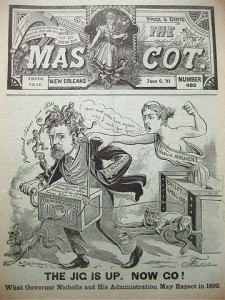A “Paper-Shuffling Bureaucrat” at Center Stage in Wisconsin Politics
Kevin Kennedy refers to himself as “just a paper-shuffling bureaucrat. – I haven’t moved to rock star status.”
But sometimes, timing is everything. So that’s why there were a gaggle of television cameras, a cluster of reporters, and about 200 others in the room when Kennedy joined Mike Gousha for an “On the Issues” session at Eckstein Hall on Thursday.
Kennedy is director and general counsel of the Wisconsin Governmental Accountability Board. Now in possession of petitions with about 1.9 million signatures calling for recall elections for governor, lieutenant governor, and for four state Senate seats currently held by Republicans, the board is at center stage for one of America’s hottest political scenes. What the GAB decides in handling the petitions and setting the course for the elections that are almost sure to result will have a major bearing on Wisconsin’s future and become a vivid part of Wisconsin’s history.
“It’s an honor to be part this process,” Kennedy told Gousha, the Law School’s distinguished fellow in law and public policy. ”And it’s definitely energizing. You can’t help but get juiced when you’re working on something this challenging.”

